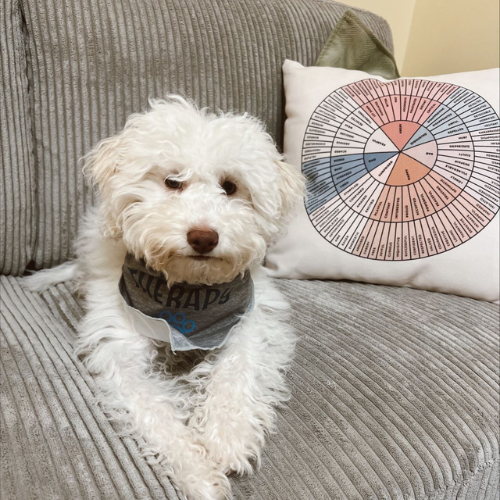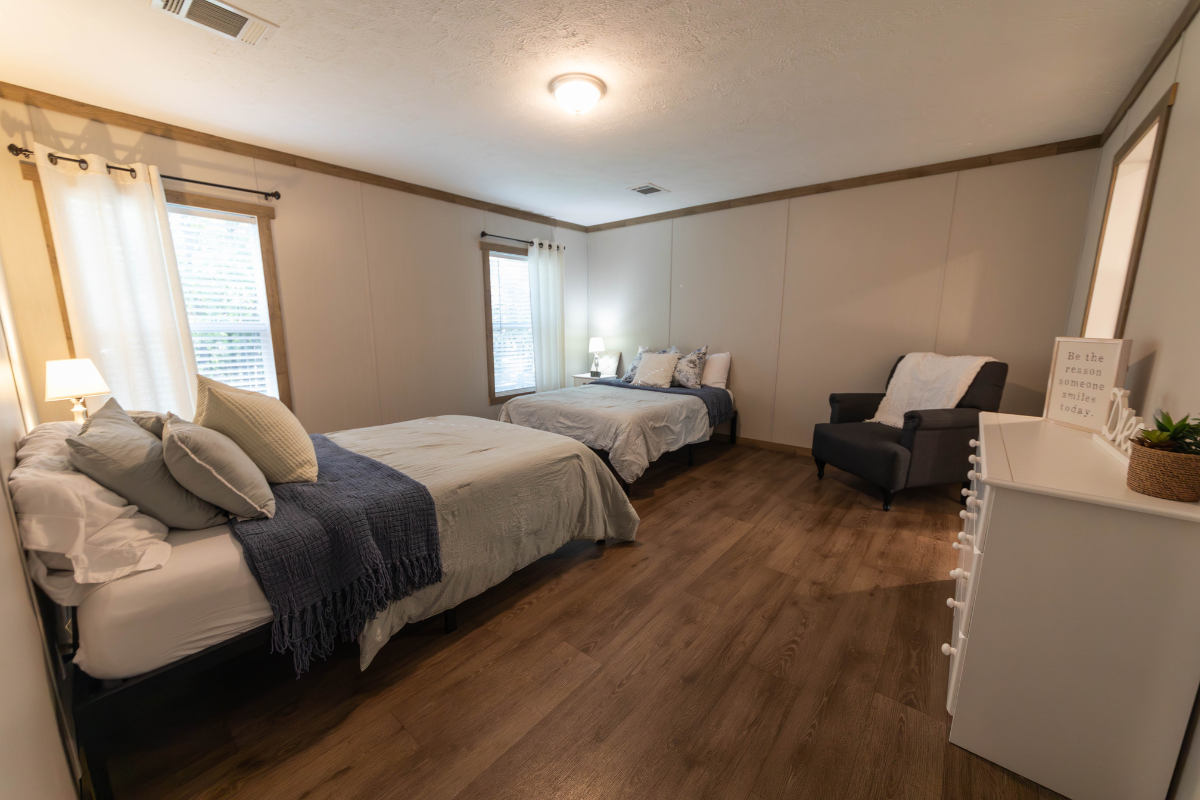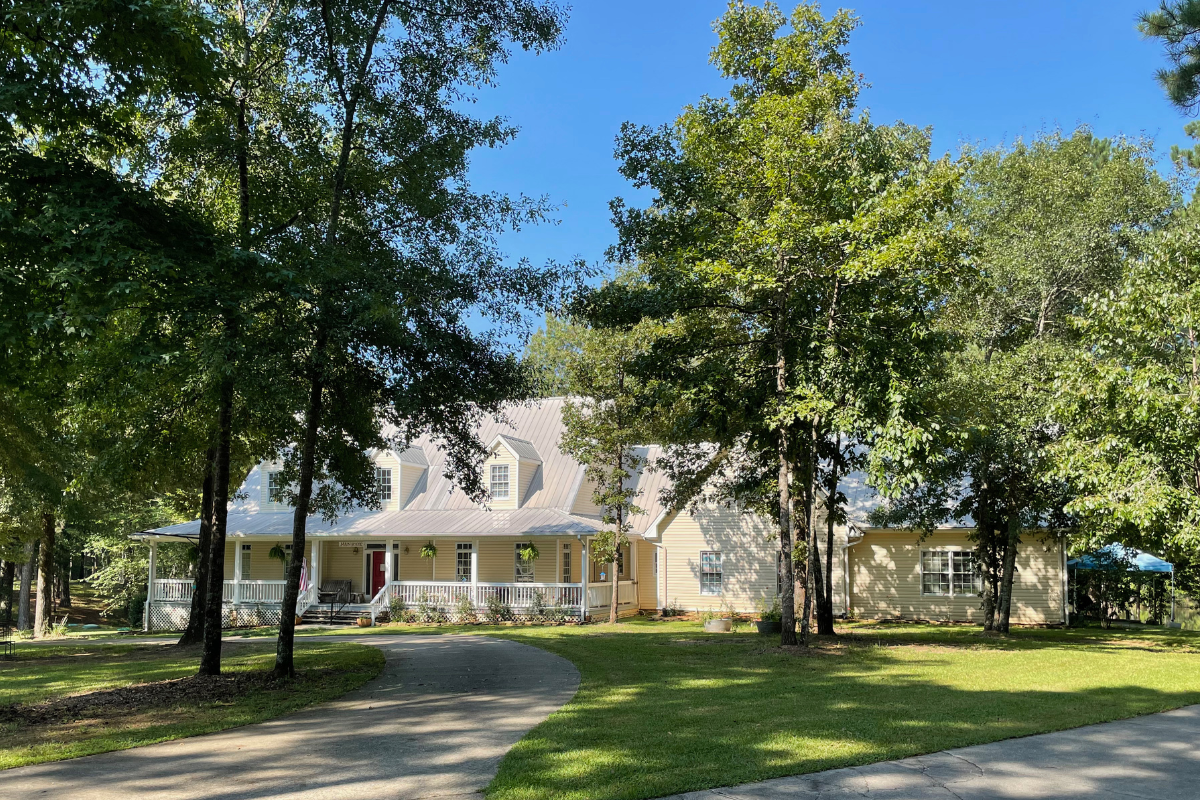The teen years are full of change. Bodies grow, friendships change, and the search for identity intensifies. It’s a time of exploration and learning, but for many teens, it’s also when food and body image begin to exert a significant influence in their lives. Restrictive eating—when someone limits how much or what they eat—isn’t just a passing phase, an interest in “clean eating”, or sign of self-discipline. It can be an early indicator of a serious eating disorder.
So why does restrictive eating often begin during adolescence? Science points to a mix of biological, psychological, and social factors. During puberty, the body changes rapidly, which can lead to increased body awareness and discomfort. At the same time, the brain is still developing, especially the parts that manage emotion, impulse control, and self-image. Add in social pressures, diet culture, and unrealistic beauty ideals online, and you begin to understand how disordered eating can take hold.
What Are Restrictive Eating Disorders?
Restrictive eating disorders are a group of mental health conditions in which a person severely limits the amount or types of food they eat, often in a way that leads to significant weight loss, malnutrition, and serious health problems.
The most well-known restrictive eating disorder is anorexia nervosa, but restrictive patterns also occur in other diagnoses like avoidant/restrictive food intake disorder (ARFID) and atypical anorexia. Atypical anorexia is a subtype of OSFED (other specified feeding or eating disorder), a serious eating disorder where someone has all the psychological symptoms of anorexia but is not severely underweight.
Bulimia nervosa is not classified as a restrictive type of eating disorder, though it can involve restrictive behaviors.
Bulimia is characterized by a cycle of binge eating followed by compensatory behaviors to avoid weight gain, such as self-induced vomiting, fasting, excessive exercise, or laxative use. While people with bulimia may engage in dieting or food restriction between binges, the disorder itself is not primarily defined by restriction, but rather by the binge-purge cycle.
It is critical to understand that restrictive eating is not about vanity or a “diet gone too far.” It’s often rooted in deeper psychological issues, including anxiety, perfectionism, trauma, or a need to feel in control. And despite popular myths, eating disorders can affect anyone—regardless of gender, race, body size, or socioeconomic background.
Why Teens Are Especially at Risk
Adolescence is a critical time in life when body changes, brain changes, and identity development can create a barrage of influence on children’s’ lives. Unsurprisingly, it’s also the time when eating disorders often first appear. Research suggests that the average age of onset for anorexia is around 15 years old, and for many, symptoms start even earlier1. (Smink et al., 2013). There are several reasons teens are especially vulnerable.
There are several reasons teens are especially vulnerable:
- Biological changes: Hormonal shifts during puberty can impact mood, body image, and appetite regulation.
- Social pressure: Teens often compare themselves to others, especially on social media, where edited, filtered images promote unrealistic beauty standards.
- Academic and extracurricular stress: Many teens face intense pressure to succeed, which can lead to perfectionism—a trait linked to higher eating disorder risk2.
- Emotional challenges: Adolescents are still learning to manage emotions, and restrictive eating can sometimes become a harmful coping mechanism.
The Hidden Dangers of Restriction
The effects of restrictive eating go far beyond weight loss. Even short periods of under-eating can have serious consequences, especially for growing bodies and developing brains.
- Fatigue and dizziness
- Trouble concentrating
- Heart problems, such as a slowed heart rate or low blood pressure
- Loss of menstruation in girls and other hormonal imbalances
- Brittle bones and stunted growth
- Anxiety, depression, and increased risk of self-harm or suicide
One often overlooked danger is atypical anorexia, where a teen shows all the psychological signs of anorexia but remains in a “normal” or higher-weight body. This condition is just as dangerous, but it is frequently missed or minimized—sometimes even by medical professionals—because of weight stigma and stereotypes about what eating disorders “look like”.
A study published in Pediatrics found that adolescents with atypical anorexia had the same degree of medical instability as those with low-weight anorexia3. This means that physical health cannot always be judged by appearance alone.
Recognizing the Signs
Early intervention can make a huge difference in recovery, so it’s important to recognize the warning signs of a restrictive eating disorder. These may include:
Dramatic weight loss or growth faltering
Skipping meals or making excuses not to eat
Obsessive thoughts about calories, food, or weight
Avoiding social situations involving food
Rigid eating habits or cutting out entire food groups
Wearing baggy clothes to hide weight loss
Increased anxiety, depression, or irritability
Excessive exercise, especially if it feels compulsive
If you notice any of these signs, trust your instincts. You don’t need to wait for a formal diagnosis to seek help.
What Parents + Caregivers Can Do
Supporting a teen with a restrictive eating disorder can feel overwhelming, but your love, patience, and understanding can make all the difference in their road to recovery and healing.
Create a safe, body-positive home
Avoid diet talk and model healthy relationships with food and body image. Emphasize health, strength, and emotional well-being rather than body size, weight, or appearance.
Be present and non-judgmental.
Let your teen know you’re there to listen—not to criticize, judge, or control.
Get professional support early.
Eating disorders are serious and require specialized treatment from trained therapists, dietitians, and even physicians. Severe or long-term eating disorders often require immersive treatment in inpatient or residential facilities where teens can receive 24/7 support.
Advocate for the proper care.
If a doctor or other clinician dismisses your concerns because your teen “doesn’t look sick,” seek a second opinion. Biases and stereotypes about disordered eating exist everywhere, even in the medical field. Keep searching until your child finds the care they need.
Magnolia Creek is dually licensed to treat eating disorders and a multitude of co-occurring disorders. We tailor our treatment plans to individual needs and goals while empowering every client in our care to embrace recovery with resilience and independence.
Sources
- Smink, F. R. E., et al. (2013). Epidemiology of eating disorders: Incidence, prevalence and mortality rates. Current Psychiatry Reports, 15(12), 406. https://pubmed.ncbi.nlm.nih.gov/22644309/
- Bardone-Cone, A. M., et al. (2007). Perfectionism and eating disorders: Current status and future directions. Clinical Psychology Review, 27(3), 384–405. https://doi.org/10.1016/j.cpr.2006.12.005
- Sawyer, S. M., et al. (2016). Medical status of adolescents with atypical anorexia nervosa. Pediatrics, 137(4), e20154080. https://doi.org/10.1542/peds.2015-4080














































